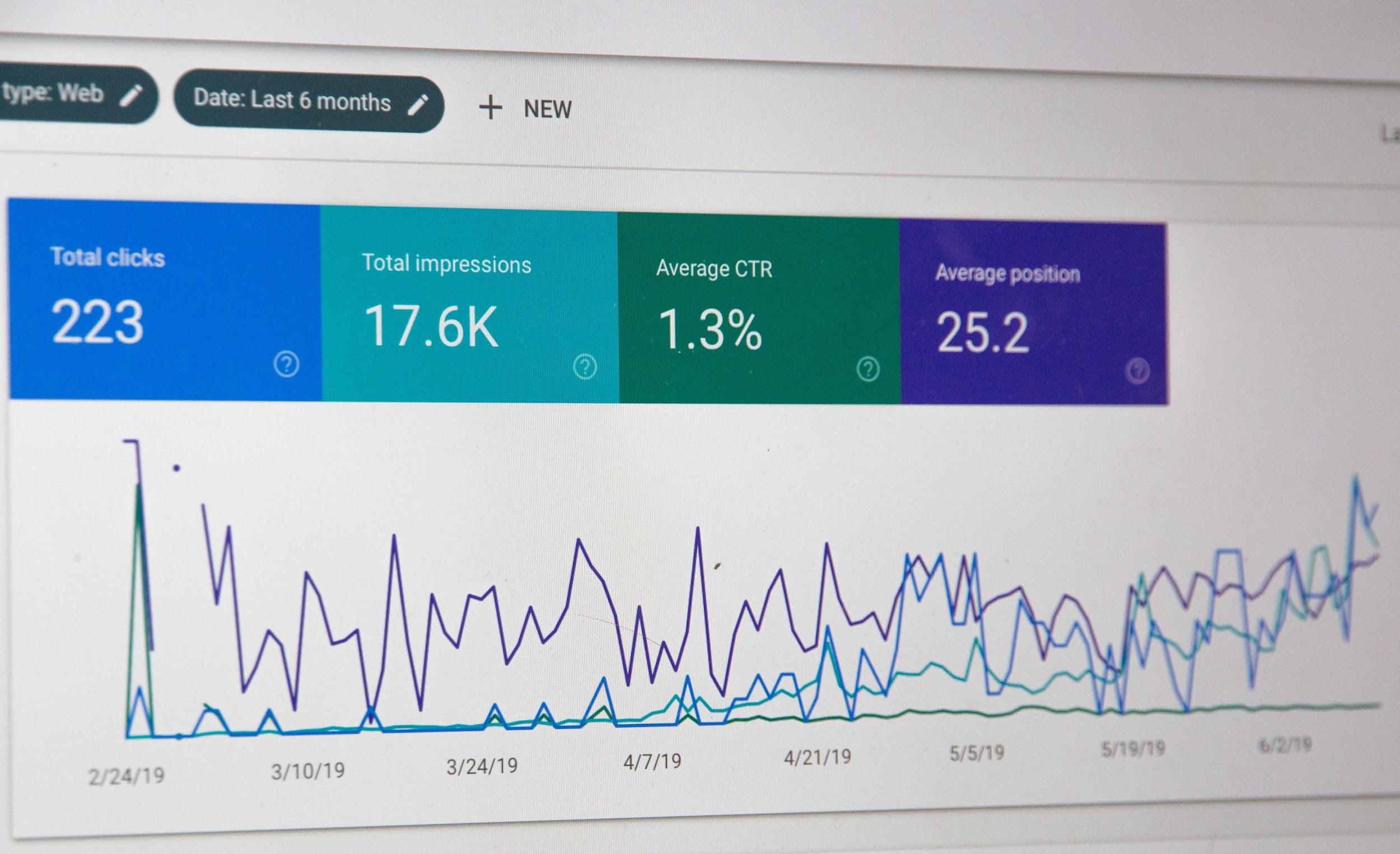Some authors are prolific. They write books like other people drink coffee or sit in traffic (or do both at the same time). For example,
- Anthony Burgess authored five and a half books in one year.
- John Creasey penned more than 500 novels.
- Alexandre Dumas wrote over 250 novels.
- Enid Mary Blyton published more than 800 children's books.
- John Creasey wrote more than 600 books.
- R.L. Stine has written hundreds of books.
- Dame Barbara Cartland wrote more than 700 books.
- Agatha Christie authored 91 novels.
- Isaac Asimov published more than 500 books.
- Nora Roberts has written over 200 books.
- James Patterson has somewhere around 150 books to his name.
- Joyce Carol Oates has written dozens of books.
- Stephen King has had more than 60 books published.
Many of these same authors have also published short stories and/or novellas. There are far more writers that could be added to the list, but you get the idea. What does that have to do with blogging?
My point is this: what's stopping you from starting a blog, something that requires far less than the 70,000-80,000 words of a book, which is significantly more than the typical blog post that should end at a minimum of 500 words and stretch up and onward topping out at 1500, 2000, or higher?
Why don't you have the courage to blog?
If you've been blogging for someone else, whether it is a company or an individual, isn't it time you blogged for yourself? What's holding you back?
"Who cares about what I have to say?"
_"I'm known for writing about _ why would anyone want to read my thoughts on ?"
"I don't have the time to figure out how to begin from scratch."
"The company/my client receives tens of thousands of visitors to its blog each week. Who wants to start at zero?"
Sound familiar? If you don't have a blog, yet here you are once again reading about starting a blog, you likely have something going through your head that makes you pause or paralyzes you entirely.
You are right. It is overwhelming to begin, stressful to figure out the details, and agonizing over getting those first posts just right.
But you can find the courage to blog.
It starts by realizing that no one online actually knows what they are doing. Even the biggest, brightest, most dazzling A-list bloggers fell into their success seemingly by accident, and they don't know how it happened.
No, really.
How many bloggers have admitted that success sort of happened to them when they weren't looking?
How many bloggers have stated that they began blogging because they were laid off or fired from their job and needed to do something?
How many bloggers wrote that they began to vent about their job, share their travel adventures, keep in touch with friends and family back home, or highlight their own creations? Then they tell you that it just took off from there.
Sure, they sometimes received a bump in traffic thanks to a link from a major news source or other bloggers. But how many times did it appear to come out of nowhere?
To be a successful blogger, you just need to show up, write even when you don't want to, and plod on when times are good, bad, and run-of-the-mill.
“Hard work is a prison sentence only if it does not have meaning. Once it does, it becomes the kind of thing that makes you grab your wife around the waist and dance a jig.” Malcolm Gladwell, Outliers: The Story of Success.
Job loss or gain, new baby, birthdays, holidays, or travel--don't let anything stop you. Let it work for you. Find new inspiration. Grit your teeth and dig in. Eventually, it becomes a habit. Your blog will become something you don't have to do, but something you need to do.
It doesn't matter if you don't think anyone will care about what you want to write. What matters is that you write it and care about it enough to stick with it.

Do you feel like you aren’t enough?
Entrepreneur Richard Branson left school at 16. Former Twitter CEO Evan Williams left college after a year and a half. WhatsApp co-founder, Jan Koum, dropped out of college. CEO and founder of Tumblr, David Karp, never earned a diploma. Oculus Rift founder, Palmer Luckey, dropped out of college. You already know about Mark Zuckerberg.
If formal education doesn't necessarily equate to success, what does?
Grit. The determination to keep going even when it is difficult, to learn things on your own that you need, or, perhaps, the determination to even begin instead of talking yourself out of it first.
“Many of life’s failures are people who did not realize how close they were to success when they gave up.” Thomas Edison.
If you want to blog, then blog. It's much like writing a book--there is nothing that says you need to have an advanced degree with honors to begin. To be a blogger, you simply must blog. You don't need experience. You don't need internships. You don't need to worry about what "they" say.
What are best practices for beginner bloggers?
If you are a business owner and are looking for ways to connect with your customers, there is no better opportunity than blogging. Think about how many times you’ve smiled or laughed or frowned when reading something online. I do it regularly, and I’m willing to bet you do too. That’s personal, and that’s the reaction we want.
However, not everyone is a natural writer, and infusing personality into your writing isn’t always easy. If things are a little too quiet around your blog site, here’s what you can do to shake it up:
Get Real
Do your readers know who you are? Not just your company but you, the person on the other end of the pen? Your blog is the one place where it’s entirely okay to give your opinion. You don’t have to be popular and you can say what you think.
Use conversational words like “you” and “I” when you are writing. These are precisely the words you would use to have a conversation with a friend or colleague. Blogging is supposed to be a one on one conversation between you and your reader. Make it feel that way. As a business to consumer blogger, I also like to tell stories that illustrate my points. Real-life stories draw your reader in and help them engage with your content. It helps them to walk a mile in your shoes.
Think about your existing clients and the things you have helped them with in the past. Explore the problems you’ve solved together or dilemmas faced. Use these examples to give your readers solid real-life examples that illustrate the sub-topics of your post.

Answer Questions Within Your Content
Questions are a normal part of any conversation. A great way to reach your readers is by answering questions that they are likely to have.
If you are targeting specific keywords for your blog post, type them into Google. You’ll notice that Google will list out several questions in a section near the top labeled “People also ask.” If your business is a little larger and you have a sales team, you can also ask them to give you the top five questions your clients regularly ask.
Work these questions into your blog post as long-tail keywords as you go. Sometimes you’ll find a question that’s a real winner around which you can build a whole post. I did this in a recent blog post titled “Do I Need Part B?”
The question is the title of the post, and it’s a common one among my readers, who are people new to Medicare. Since there are several answers to this question, I used my blog post’s content to answer that question differently for three separate groups of people.
See if you can do something similar with your topic.
Create Custom Images
Custom images are another great way to get real with your readers. Resources like Unsplash are great for getting high-quality stock images. However, these are recognizable as stock images. This isn’t a bad thing, but your readers will react better to a mix of stock and in-house content.
Use an online tool like Canva to create your own images or infographics. The more detailed, the better. Try tying your data in with your graphics, or if possible, incorporating a little humor to spice up your post.
Bang Your Own Drum
Original, fresh, and exciting content appeals to readers so don't follow the pack: be proud of your identity and voice. I decided to use my digital drawings rather than photographs as thumbnail images. Since moving away from stock imagery, I’ve noticed my readers respond positively to these. I'm still finding my feet writing content and have discovered that my in-depth posts get more comments as readers value informative articles.

Content Calendars Are Essential
Using a calendar to plan your blog posting is invaluable. By getting the content out of the way, you can focus on your goals like driving traffic, expanding your readership, and increasing engagement. Find a tool that can help organize the days your content is released to the public and get more awareness in doing so.
Stay in Touch With Your Readers
I have surveyed my readers to better understand what they want to read or listen to. I found it gratifying to receive their feedback - both positive, negative, or constructive. It’s humbling to learn from others. I’d like to involve them more in my writing choices - perhaps by running a competition or encouraging their contributions.
Prompt a Response
It would be great if everyone took the time to leave you a comment telling you what they thought of your post. Though, the reality is that many people simply don’t think of it, so you’ve got to get them commenting. So, what can you do to get them to respond?
It’s simple. Ask a question to your readers at the end of each post. Let them know you want to hear from them. It can be intimidating to post a question on the world wide web for everyone to see, so give them a reason to.

How can I write less and still grow my blog?
Not so long ago, A-list bloggers everywhere said that the best way to grow your blog was to publish every day. So, other lesser-known pro bloggers and new bloggers (and everyone else in-between) followed that advice to the best of their ability.
It resulted in far too many bloggers producing far too skimpy content far too often. It was an exhausting pace for a solo blogger trying to be heard. Not even readers could keep up. Inboxes swelled with unread content and email recipients used the "delete" button far too often.
Fortunately, times have changed.
Guess what?
You no longer have to publish constant content to grow a following and build your readership.
Focus on Quality Content
Today, it is all about producing quality content. Helpful content. Valuable content. Remarkable content. Evergreen content. No matter what you want to call it, it's the type of posts that never go out of style. Like a classic novel that is just as fascinating today as it was one hundred years ago, these are the posts that matter.
And, yes, it does have to do a little bit with your grammar too. A post that is packed with grammatical errors and typos probably won't get the response you wanted. All those errors add up and make it hard to get lost in what you wrote.
Even Google is no longer interested in the wimpy less than 500-word posts that once a day content producers were sending out (and still are). Think about it, and you can figure out why on your own.
Stumped? These epic posts exhaust a topic, unlike the smaller posts that barely skim the surface.
There are plenty of bloggers out there right now killing themselves trying to publish one post each day. The problem? The articles are garbage.
Sure, there might be a valuable, useful post in the mix, but out of the multitude of tiny posts they are churning out each month, it's hard to find the good stuff in the noise.
That's the way their readers feel too. Publishing too many posts fills up a subscriber’s inbox with new material daily. How frequently do you read your favorite blogs? Do you read them every day, or do those new email subscriptions start to stack up until you delete earlier posts and skip ahead to the most recent content?
What about the bloggers?
Let's face it: some days you don't want to write. There isn't time, you were up late or too early or had interrupted sleep because of the new baby/puppy/loud neighbors/work/illness/children—you get the idea.
It's no wonder that so many bloggers abandon the practice each year. When faced with the prospect of such an unending mountain of work, who wouldn't want to throw in the towel?
So much content creation makes it near impossible for bloggers of any kind to focus on anything other than, well, blogging!
Do you even have time for anything else?

Remember to Spend Time on Marketing
With all of that writing, where is the promotion? If you spend so much time writing a new post every day, when do you find the time to promote what you wrote? What if instead of writing new content, spending a fraction of the time promoting it, then moving onto the next topic, you invested time to market your article?
Why not take a closer look at the social media messages you are sending? Missinglettr makes it even easier to promote your blogs on social media for an entire year at a time. But what if you took the time to optimize more of your associated images for the social networks where you distribute content? What if you made sure that the text for your social networks was the best that it could be?
What if you used the time you save writing by engaging more with the fans and followers you do have? What if you reached out to related influencers in your niche and started a conversation? What if you had the time to tackle those website fixes and finally update your social media network profiles and profile pics?
We might be onto something.
Ditch the Daily Blogging Mentality
Your readers are busy. You’re busy. Everyone is busy.
Don't waste time-theirs or yours. Only write posts that bring your "A" game. Otherwise, who needs it? No one.
Unfortunately, there is no magic number of posts to write to achieve the best balance. Instead, like everything else having to do with blogging, you will need to figure out what number of posts works the best for your readers. You will have to decide how much fresh content needs to go up to achieve the maximum number of shares, followers, and engagement.
Pare down how much content you plan to create. Try fewer posts a week. Instead of seven, try four or three and measure the results. Actually look at your Google Analytics, take a look at your social networks, and take notes. What's working? What isn't? Is there a difference?

Compare the actual traffic to how much buzz your post is causing. Based on that number, decide if it is worth continuing at that pace or if you can safely back off without anything too tragic happening.
Hint: you will likely be able to back off and enjoy more subscribers, fewer unsubscribes, and a more engaged readership after peeking at your data and optimizing your scheduling.
Pick specific days of the week when you want to post. Preschedule those posts ahead of time. It shouldn't be hard--you've been writing far too much for far too long already. But this time, only publish your best work. If it doesn't feel like it is quite there yet, you aren't in any hurry.
When your readers know what to expect from you, like how often you will send a new post in their inbox, your readers will make time for what you have to say. They will be ready. Your readers will no longer see a post from you in their inbox and delete it because they know more is on the way. They will welcome your latest efforts--especially when you start upping your writing game.
Create Value
Your posts should be long, informative, and fun to read. Don't click "schedule" on a post unless it is well over 500 words. Those days of shoddy, too brief content is gone.
If you want to rank in the search engines, you must provide the quality content searchers aren't going to find anywhere else.
Chunk up text blocks with headings, bullet points, graphics, images, and whatever else you can think of.
Don't use more than three sentences per paragraph, so it is easier on the eyes. Every so often, it's okay to use just a sentence on a single line to get their attention.
Made you look.
Ask your readers questions to get them thinking about what they are reading. See how that works?
Create a mind map to get started or start jotting down things that have to deal with your topic. See what your competitors are doing and then take it further. Most bloggers do the bare minimum. Don't follow in their footsteps.
You can do better. You can be better.

Be Fearless
Gone are the days of excuses not to blog. Make a plan. Plot out your content. Test what works. Repeat, repeat, repeat. Great content on the Internet is in short supply. Be one of the quality bloggers. Spend more time writing, proofing, and marketing, and see an increase in your blog's success. If you managed to pull it off right, you'll gain massive success in no time.
Make the most out of the blogs you publish with Missinglettr. For every new blog you publish, Missinglettr develops a year’s worth of high-quality social media content you can schedule to ensure all your articles get the attention they deserve without sucking up all of your time.



